The Inside Scoop: What’s been happening at Environmental Defence?
February 2021

2020 was a big year for the environment, partially due to COVID-19 but also because of a growing awareness of the need for meaningful change. The pandemic and its lockdowns caused skies to clear, rivers to run cleaner, and wildlife to return. And while temporary, these dramatic changes demonstrate that natural systems are resilient and can recover quickly if we act to reduce pollution.
COVID was also a wake-up call for the need to better protect our environment and for a rapid transition to an economic and energy system that will address climate change and biodiversity loss. And, there is growing evidence that it is possible. Here’s an inside scoop on what we’ve been working on in the last year to address both the threats and opportunities for our environment – none of which could be possible without your support – thank you! What we learned in 2020 is informing our work for 2021 which is shaping up to be an exciting year for better protecting our environment, so stay tuned.
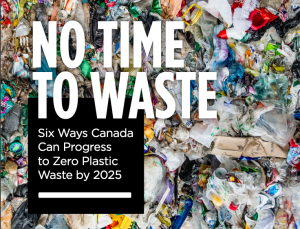 Program Goal: Banning plastics that cannot be recycled or re-used and ensuring that plastic producers pay for a system that ensures plastic does not become waste in our environment.
Program Goal: Banning plastics that cannot be recycled or re-used and ensuring that plastic producers pay for a system that ensures plastic does not become waste in our environment.
At the start of 2020, we launched our Plastic Wall of Shame — an online initiative to call out companies for using greenwashing tactics (or simply not trying at all) to avoid reducing plastic waste. Some companies featured on the wall include Nestlé, Coca-Cola, and Starbucks.
Our report No Time to Waste: Six Ways that Canada Can Progress to Zero Plastic Waste by 2025 provided a comprehensive roadmap for the government on how to tackle plastic pollution in Canada. We were pleased that despite heavy lobbying from the chemical industry, the voices of our supporters were heard and the federal government reaffirmed its commitment to tackling plastic pollution and followed our recommendations to ban unnecessary and non-recyclable single-use plastics. This is an important first step but there is still much work to be done including getting plastics added to the toxic list in CEPA and making producers responsible for their plastic waste.
In the fall, the Ontario government released a draft of its Blue Box regulations – but these proposed regulations still fall short of what’s needed. The good news is that the proposed regulations would make companies operate and pay for the Blue Box program. However, the advised recycling targets for producers for all plastics are too low at 40% to 60%, which means 40% to 60% will still end up in the environment. The province can and should do better when it comes to single-use plastic and packaging waste and we’re working to make sure they do.
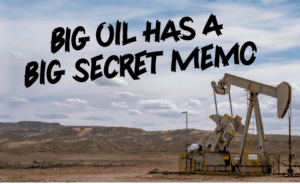 Program Goal: Ensure Canada does its fair share to reduce climate change causing carbon emissions and do this in a way that creates a cleaner and more just economic and energy system for Canadians.
Program Goal: Ensure Canada does its fair share to reduce climate change causing carbon emissions and do this in a way that creates a cleaner and more just economic and energy system for Canadians.
This past year, climate change has continued to capture the world’s attention as extreme global weather events caused dislocation and human tragedy. Since signing the Kyoto climate agreement decades ago, Canada has consistently missed meeting its national emissions reduction targets. So, building on our successful efforts to put the environment at the top of the agenda during the federal election, we have been advocating for a Green and Just Recovery from the COVID-19 crisis, including prioritizing sustainability in federal financial aid packages. Not surprisingly, the oil industry is undeterred in their plans for expansion and have shown very little commitment to a meaningful climate plan. We leaked a secret memo from the Canadian Association of Petroleum Producers (CAPP) to the federal government which revealed the oil industry’s demands for exemptions from environmental laws, regulatory rollbacks, and increased secrecy. We subsequently launched an effort to take on the oil lobby by demanding Shell Canada leave CAPP – because of CAPP’s efforts to undermine Canadian climate action.
In the last year we also celebrated some huge victories. In February 2020, the Reject Teck campaign rejoiced when plans for the Teck Frontier Mine, the largest tar sands mine ever proposed, were cancelled. And, we celebrated when the federal governments decided to designate the expansion of Coalspur’s Vista Coal Mine in Alberta for a federal environmental assessment – a positive move towards having the entire project rejected.
Meanwhile, in Ontario, our Failure To Launch report pointed out the shortcomings of the province’s Environment Plan — which Ontario’s Auditor General confirmed — and that, after a year, the province has made nearly no progress on implementing its own plan. Our collaborative efforts against a new Enbridge natural gas pipeline near Hamilton, resulted in Enbridge pausing its application. And our report CLEARING THE AIR: How Electric Vehicles and Cleaner Trucks Can Help Reduce Pollution, Improve Health, and Save Lives in the Greater Toronto and Hamilton Area was featured on the federal government’s Clean Air Day website.
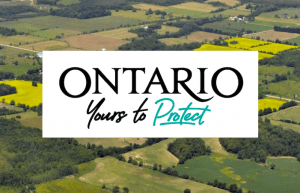 Program Goal: Stop rampant urban sprawl that would pave over farms, forest and wetlands, and work with communities to fight back against the Ontario government’s elimination of environmental protections.
Program Goal: Stop rampant urban sprawl that would pave over farms, forest and wetlands, and work with communities to fight back against the Ontario government’s elimination of environmental protections.
We launched our Ontario Yours to Protect campaign last year just before the COVID-19 pandemic impacted every aspect of our lives. Its impacts have further inspired a need for change and an opportunity to rethink our relationship to urban design, land use, urban growth, and mobility. That’s why we joined the 2020 Declaration for Resilience in Canadian Cities. And, with our help, CBC News exposed secret negations between a developer and the Ontario government to remove some land from the protected Greenbelt. Thanks to the exposure, the land remains in the Greenbelt.
In the fall of 2020, the Ontario government launched an all-out attack on Ontario’s protected forests and wetlands by making major changes to the Conservation Authorities Act. The changes have taken away control over the protection of our precious wetlands, forests, wildlife habitat and natural spaces from Conservation Authorities. These changes give huge new powers to developers to push through destructive projects by using Ministerial Zoning Orders (MZO’s) which allow them to ignore proper planning and environmental protection. Already we’ve seen Lower Duffins Creek Wetland, wetlands in Vaughan, and more recently even downtown Toronto affected by the Ontario government using MZOs to trample over environmental protections, local government and democratic due process. Thousands of Ontarians have sent in letters, called their MPPs and marched in the streets voicing their concern and this wave of opposition is getting noticed.
In addition, the Ontario government is now trying to bring two massive 400 series highway projects back from the dead in the GTA – and, they plan to exempt both projects from proper environmental approvals jeopardizing farmlands, forests, species at risk, water and air quality, a safe climate and people’s homes. Environmental Defence has and will continue to engage the public and local community groups to stop Highway 413 and other egregious proposed developments. Your voice matters and collectively we can stop these developments.
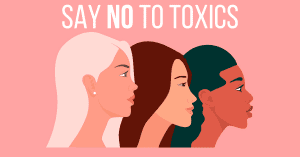 Program Goal: Protect Canadians’ environment and health from the impacts of toxic chemicals in our food, consumer goods and in the water we drink and air we breathe.
Program Goal: Protect Canadians’ environment and health from the impacts of toxic chemicals in our food, consumer goods and in the water we drink and air we breathe.
Many of the toxic chemicals we are exposed to everyday are linked to serious illnesses, like cancer and asthma, and harm our environment. That’s why we’ve been working with the government and industry to put stronger rules in place to reduce our exposure. While the Federal government has committed to reform the country’s cornerstone toxics and pollution prevention law, the Canadian Environmental Protection Act (CEPA), we will need to continue our work to ensure that they follow through on their promise. Due to our legal efforts with Ecojustice, Volkswagen was charged $196.5 million in January for importing nearly 128,000 cheating diesel vehicles that violated Canadian emission rules – this was the largest environmental fine in Canada.
Our efforts to pressure retailers to phase out PFAS (per- and polyfluoroalkyl substances) and BPA and BPS is working! Freshii, Home Depot, and Lowe’s committed to phasing out PFAS chemicals from their salad bowls and carpets, respectively – and just last month, McDonalds announced phasing out all PFAS from their food packaging by 2025 globally, a move we hope will pave the way for other large fast food chains. In January 2020, Costco Canada became the first Canadian-based grocery retailer to phase out BPA and BPS receipt paper. And just this month, Loblaws (including No Frills and Shoppers Drug Mart) joined Costco Canada and committed to phasing out receipt paper containing BPA and BPS by the end of 2021. Another huge move we hope other leading grocery giants across Canada will follow.
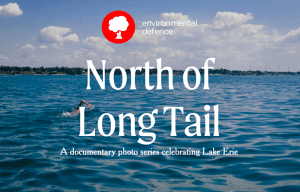 Program Goal: Protecting Canada’s freshwater ecosystems with a focus on the Great Lakes.
Program Goal: Protecting Canada’s freshwater ecosystems with a focus on the Great Lakes.
Canada is home to some of the world’s largest freshwater lakes. And every day we work hard to protect them from pollution. For the past several years, we have called for the Ontario government to have new rules for water bottling in the province — rules that put people before profits. Thousands of people asked the province to extend its moratorium on new or expanded bottling permits and we won! Since then, the Ontario government has released its new draft regulations for water bottlers, and they look promising.
Meanwhile, we have continued our work to protect Lake Erie from massive, and sometimes toxic, algae blooms. We called the federal and Ontario governments out for being behind on implementing their plan to help restore the lake. And, we engaged with people near the lake and on social media on this issue.
We also collaborated with photographer Colin Boyd Shafer on a documentary photography project North of Long Tail, that explored people’s deep intrinsic connections to Lake Erie.